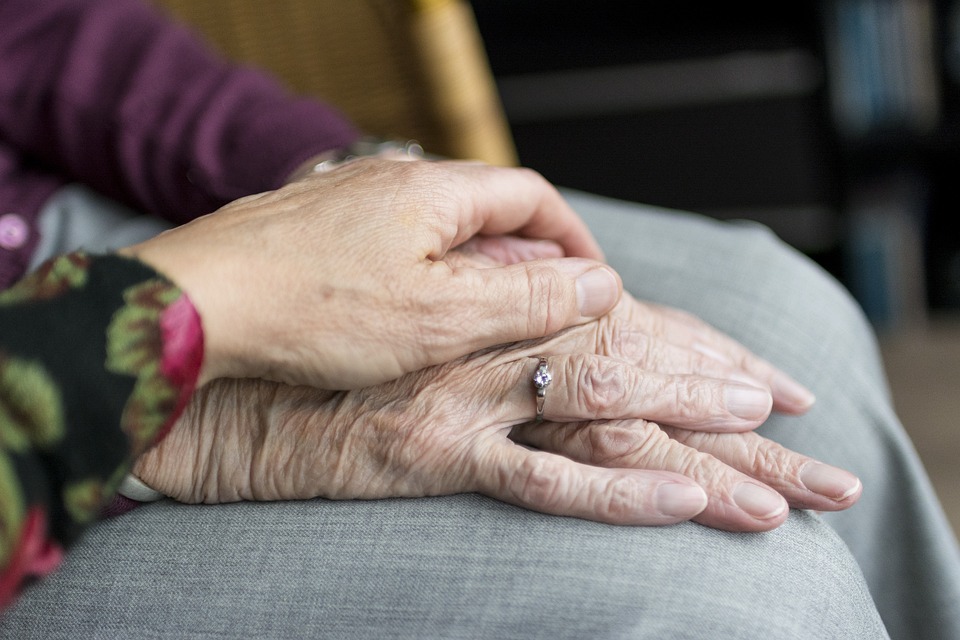
Jennie Mackenzie championed the work of Rosilene (left) and Melkam (right) at the critical, early stages of their careers.
Whether they realise it or not, children and indeed parents all over Australia have had their lives enriched by Jennie Mackenzie.
Most obviously as a director of the beloved pre-school TV show, Play School (one of Jennie’s episodes won a Television Society of Australia award), but also through her long career in the broader media and government, shaping resources to nurture our youngest minds.
Sadly, Jennie passed away in 2021, but her stake in the future continues through her significant donation to the University’s Charles Perkins Centre (CPC) and its fight to prevent some of the most pervasive conditions of the 21st century – obesity, diabetes, and cardiovascular diseases.
The Charles Perkins Centre is home to labs, clinics, and medical research facilities populated by world-leading researchers looking for answers. Since lifestyle-related conditions are often linked to our lived environments, the CPC is multidisciplinary – drawing on the expertise of philosophers, anthropologists, engineers and economists. It factors in all the layers, medical and social.
A person of great warmth and intelligence, Jennie first connected with the CPC later in her life, after a battle with cancer. She quickly made connections, becoming inspired by the CPC’s culture of promoting fresh, cross-disciplinary ideas. In return, many of the researchers were inspired by Jennie and her obvious enthusiasm. Jennie was particularly drawn to the idea of encouraging early-career researchers to do their best work, unhindered by the ever-present burden of applying for grants. One of those researchers was Dr Rosilene Ribeiro, a Senior Research Fellow at the School of Life and Environmental Sciences, and Royal Prince Alfred (RPA) CPC Head of Clinical Resources (MND ’12, PhD ’16).

Jennie’s portrait in the Charles Perkins Centre. Portrait of Jennie courtesy of Nick Bowers (2015).
“When I met Jennie, I went to shake her hand and she just hugged me. That’s the sort of person she was,” says Rosilene. “Then she decided to fund my research for four years, which changed my life. I remember thinking – now I can really do my work.”
Rosilene, who is originally from Brazil, is looking at how nutrition can result in healthier longevity. Improving cardiometabolic health has three main threads: heart and blood vessel health; metabolic functions, like blood sugar regulation and insulin sensitivity (linked with type 2 diabetes) and the processing and storage of nutrients like carbohydrates, fats, and proteins.
“We can’t change the fact that we are all ageing,” says Rosilene. “But we can improve our nutrition in ways that delay the onset of chronic diseases.”
Rosilene is currently investigating sarcopenia, which causes a loss of muscle mass in older people. It’s managed using supplements of branched-chain amino acids (BCAAs) which also seem to cause weight gain, compromising overall cardiometabolic health.
The answer could lie in combining BCAAs with other medications, which is the focus of a clinical trial now being run by Rosilene, who is obviously encouraged by what she’s seen. “If the trial shows us a solution, we can guide clinicians on how to maximise the benefits of BCAAs while keeping people in good cardiometabolic health.”

Senior Research Fellow Dr Rosilene Ribero, recalls Jennie’s warmth and enthusiasm.
Through Jennie’s support, Rosilene has been able to dramatically amplify the quality and quantity of her output. This is also true of Associate Professor Melkam Kebede, whose strong connection with Jennie led to an opportunity for support. Jennie’s gift helped the University hire Melkam as a postdoctoral fellow, and she is now pursuing her work in understanding the mechanisms that cause diabetes.
“The rate of diabetes is growing alarmingly,” says Melkam, who is working on a busy side project – the arrival of her second child. “There are about 1.5 million Australians currently living with the condition and half a million people with undiagnosed type 2 diabetes.”
“It’s a condition that’s constantly discussed but there’s still so much we do not know about it.”
Melkam is another example of how Jennie’s support allowed a young, gifted researcher to reach her full potential. “I think Jennie could see and feel the passion I have for what I do. Her support gave me the opportunity to be braver in my work, which has been so rewarding.”

Head of the Islet Biology and Metabolism Laboratory, Associate Professor Melkam Kebede, credits Jennie’s support to be braver in her work.
Another passion of Jennie’s was jazz. The University said goodbye with ‘Jazz for Jennie’, a concert performed by the Sydney Conservatorium of Music jazz band for the friends, family and colleagues who knew and loved Jennie, including the researchers turning her support into transformative medical advances.
A final bequest of $22 million from Jennie will allow the CPC to invest in the brightest, most innovative researchers and fast-track their ideas. Academic Director of the CPC, Professor Stephen Simpson AC, was an admirer and friend of Jennie’s.
“Her vision and legacy will continue through our research and through the healthier, longer lives of the people it helps.”
Written by George Dodd for the








